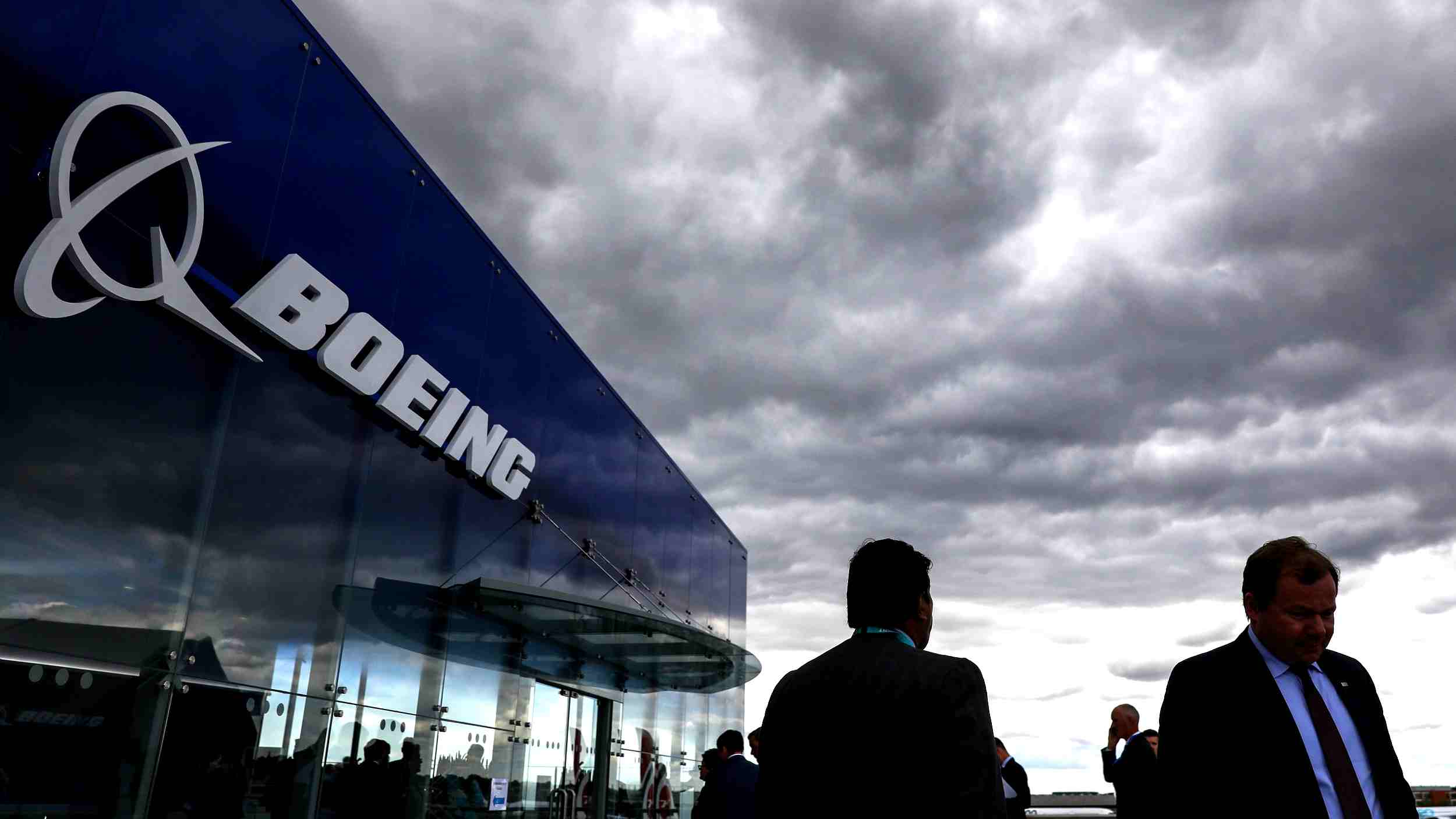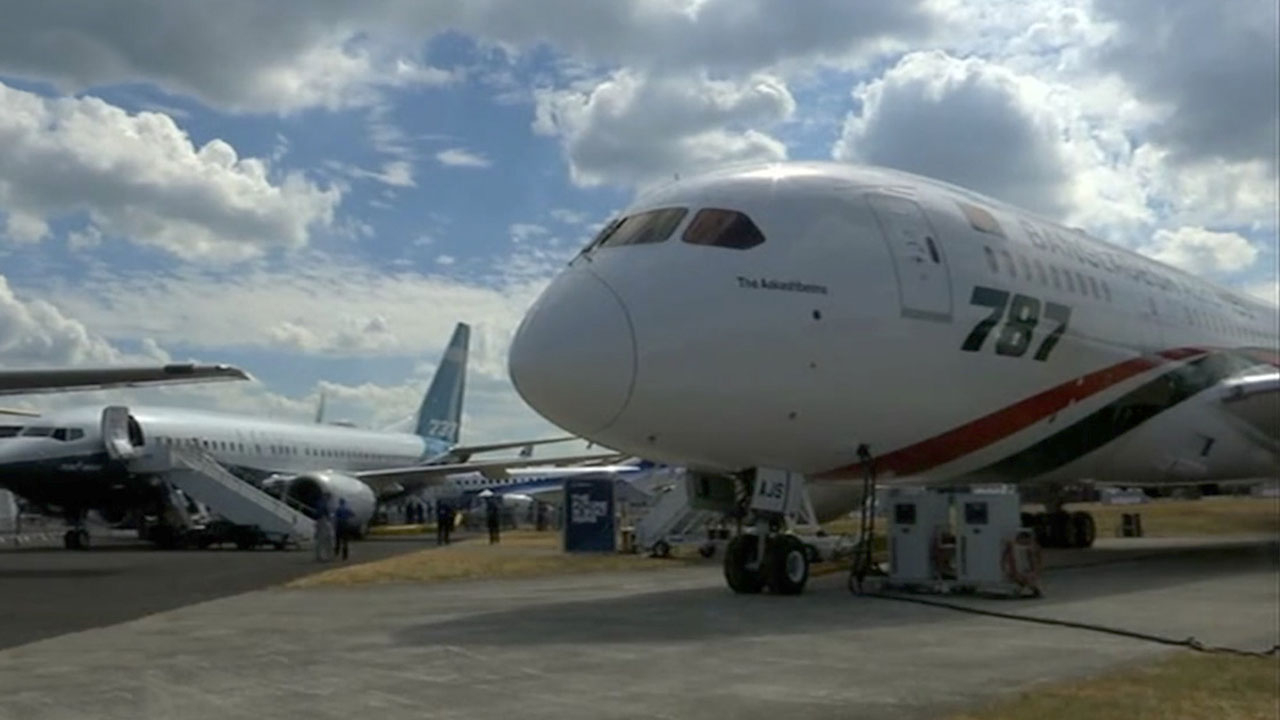
Business
14:24, 18-Jul-2018
Boeing lifts industry forecast as China drives demand
Updated
13:31, 21-Jul-2018
CGTN

Boeing raised its rolling 20-year industry forecast for passenger
and cargo aircraft on Tuesday, as a steady flow of deals on day two of the
Farnborough Airshow underscored the industry's resilience to rising global
trade tensions.
The world's biggest plane maker predicted 42,700
industry deliveries over the next two decades, up three percent from
its estimate of 41,030 a year ago.
That would be worth 6.3 trillion US dollars at
list prices versus last year's 6.1 trillion US dollar forecast.
02:40

Boeing's forecasts underscored the sector's
reliance on emerging markets in general and China in particular, making
the US plane maker especially vulnerable should trade tensions between
Washington and Beijing escalate into a full trade war.
Boeing, which calls
itself America's biggest exporter, delivered more than one out of every four
jetliners it made last year to customers in China, one of the world's
fast-growing aircraft markets.
Boeing's vice-president of commercial
marketing Randy Tinseth told a news briefing that China looked set to
overtake the United States as the world's biggest domestic air
travel market in 10-15 years.
But he declined to be drawn into commenting
on US trade policy, saying: "We are going to focus on what we can
control."
Boeing saw
a small increase in demand in the cargo market, a barometer of trade and
business confidence, forecasting 980 new freighters from a projected 920 a
year ago, fuelled by the growth of e-commerce, particularly in China.
The US group and
European rival Airbus continued to rack up deals at the air show in southern
England after a brisk opening day on Monday.
Russian airline Volga Dnepr
committed to buying Boeing freighters worth 11.8 billion US dollars at list prices,
while US leasing company Air Lease Corp committed to buying as many as
78 Boeing aircraft worth 9.6 billion US dollars.
In the meantime, Airbus bagged a
provisional deal with an unidentified customer for 100 single-aisle A320
family jets, worth about 11.5 billion US dollars at list prices.
But analysts
cautioned many deals firmed up provisional ones, disclosed previously
unidentified buyers, or changed existing orders, making it hard to gauge the
level of demand.
Rising oil prices and interest rates, trade tensions
and uncertainty over Britain's departure from the European Union all pose
a risk to an eight-year boom in civil aviation, which has boosted industry
order books and share prices.
Source(s): Reuters

SITEMAP
Copyright © 2018 CGTN. Beijing ICP prepared NO.16065310-3
Copyright © 2018 CGTN. Beijing ICP prepared NO.16065310-3